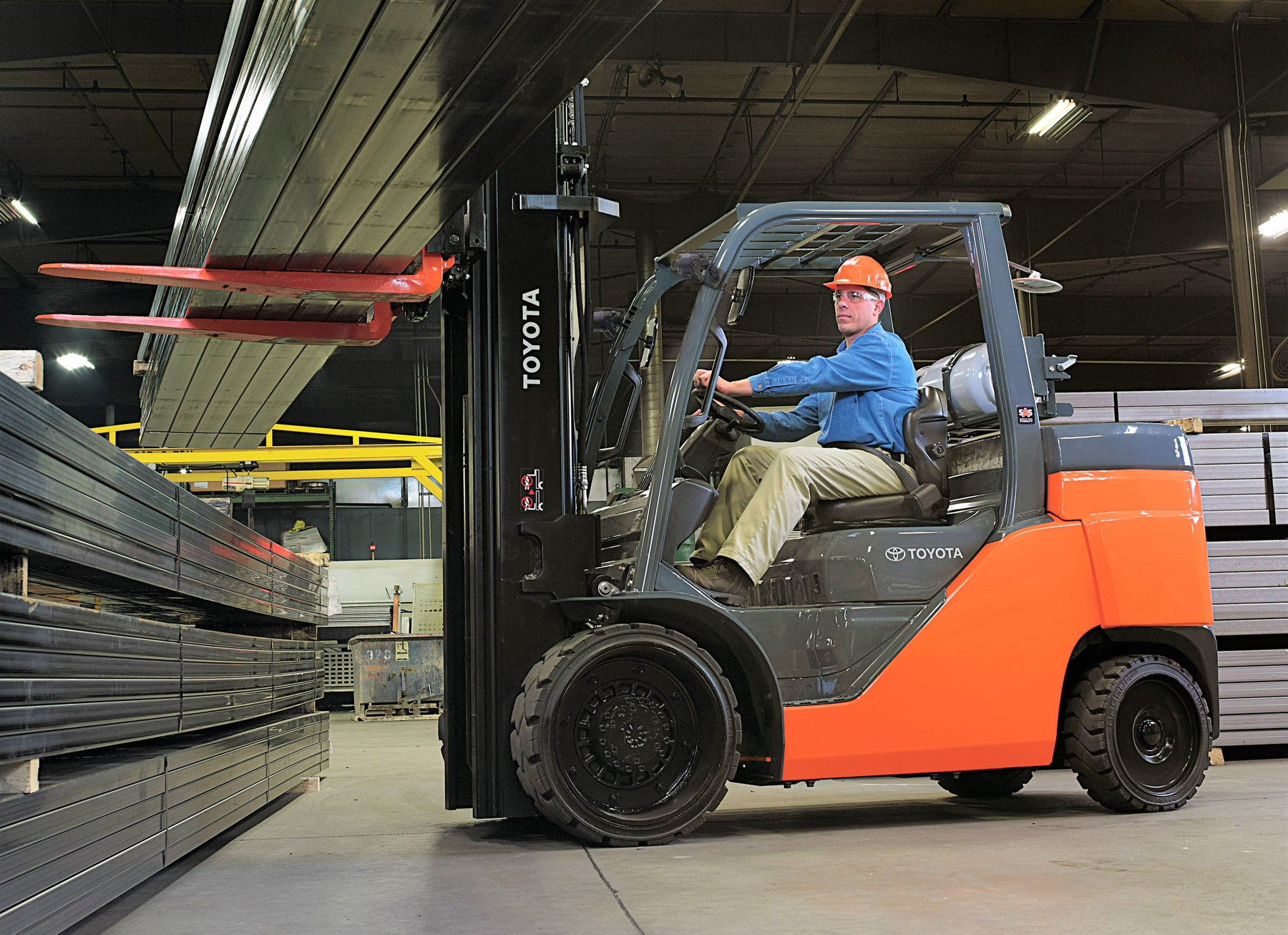
What are Class IV Forklifts? Exploring Class 4 Internal Combustion Cushion Forklifts
In the fast-paced world of material handling, having the right equipment is crucial for optimal operation and safety. When it comes to choosing a forklift, Class IV Forklifts are a game changer. This article will introduce you to the world of Class IV forklifts, and demonstrate why they might be the perfect choice for your business needs.
Understanding Class IV Forklifts
Class IV forklifts, also known as Internal Combustion Cushion Tire Forklifts, are powerful, versatile, and designed for use on smooth, indoor surfaces. These forklifts are equipped with cushion tires (not air-filled). Powered by internal combustion engines, they offer a great combination of strength, efficiency, and reliability.
Toyota's Class IV Forklift Range
Toyota offers a wide range of Class IV forklift models, each tailored to meet specific industry needs. Some of the most popular models include:
- Core IC Cushion: A versatile and reliable option for general material handling applications, with capacities ranging from 3,000 to 6,500 pounds. This forklift is ideal for warehouses, distribution applications, the auto industry, general manufacturing plants, and retail storefronts for its extreme versatility.
- Large IC Cushion: Designed for heavier applications, with lifting capacities up to 15,500 pounds and enhanced ergonomics for operator comfort, this forklift also has reduced fuel emissions and fuel consumption.
- Box Car Special: Ideal for railcar loading and unloading, featuring a short turning radius and designed with an impressive lift capacity of up to 12,000 pounds.
- Paper Roll Special: Customized for the paper industry, with a unique roll clamp attachment for safe and efficient handling of large paper rolls.
- High-Capacity Cushion: A versatile multi-tasker in a warehouse or manufacturing facility. Built for demanding tasks, these forklifts have capacities up to 22,000 pounds.
- High-Capacity Large Cushion: Designed for the most challenging applications with lifting capacities up to 80,000 pounds. This forklift is ideal for automotive environments and for moving steel inside manufacturing facilities.
- High-Capacity Adjustable Wheelbase: The ultimate powerhouse with an extendable wheelbase that includes removable slabs, lifting capacities up to 80,000 pounds, and a multi-stage telescopic boom able to safely and efficiently move large equipment, such as industrial machinery or massive engines.
Common Uses and Industries
Class IV forklifts are widely used in various industries, including warehousing, manufacturing, retail, and logistics. Their versatility makes them suitable for handling palletized loads, containers, large appliances, heavy machinery, and more. These forklifts are a great solution for businesses that require powerful, versatile, and reliable equipment for their material handling needs:
- Loading and unloading trucks at distribution centers.
- Transporting heavy equipment and machinery in manufacturing plants.
- Stacking and organizing products in high-density storage facilities.
- Moving raw materials and finished goods in production facilities.
- Handling bulky items in home improvement stores and retail environments.
Liftow offers an extensive range of Class IV models, expert advice, and unmatched after-sales support for your business. Don't miss out on the opportunity to elevate your operation to new heights – Contact Liftow today and let us help you find the perfect Toyota forklift for your business.
Visit our website at https://liftow.com/ or reach out to one of our representatives to discover how our Class IV Toyota forklifts can help in your material handling operations.

